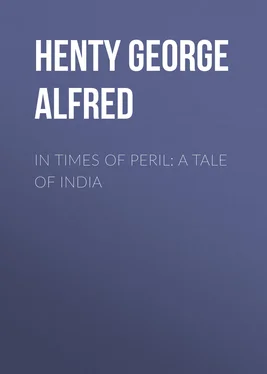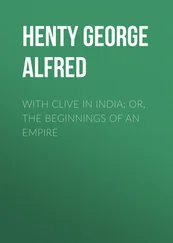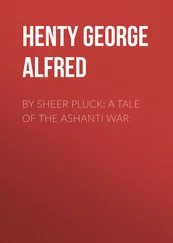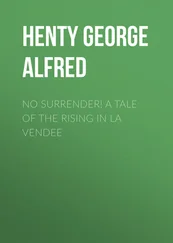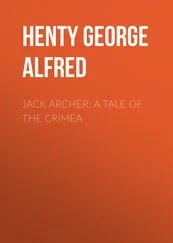George Henty - In Times of Peril - A Tale of India
Здесь есть возможность читать онлайн «George Henty - In Times of Peril - A Tale of India» — ознакомительный отрывок электронной книги совершенно бесплатно, а после прочтения отрывка купить полную версию. В некоторых случаях можно слушать аудио, скачать через торрент в формате fb2 и присутствует краткое содержание. Жанр: foreign_children, foreign_antique, foreign_prose, на английском языке. Описание произведения, (предисловие) а так же отзывы посетителей доступны на портале библиотеки ЛибКат.
- Название:In Times of Peril: A Tale of India
- Автор:
- Жанр:
- Год:неизвестен
- ISBN:нет данных
- Рейтинг книги:3 / 5. Голосов: 1
-
Избранное:Добавить в избранное
- Отзывы:
-
Ваша оценка:
- 60
- 1
- 2
- 3
- 4
- 5
In Times of Peril: A Tale of India: краткое содержание, описание и аннотация
Предлагаем к чтению аннотацию, описание, краткое содержание или предисловие (зависит от того, что написал сам автор книги «In Times of Peril: A Tale of India»). Если вы не нашли необходимую информацию о книге — напишите в комментариях, мы постараемся отыскать её.
In Times of Peril: A Tale of India — читать онлайн ознакомительный отрывок
Ниже представлен текст книги, разбитый по страницам. Система сохранения места последней прочитанной страницы, позволяет с удобством читать онлайн бесплатно книгу «In Times of Peril: A Tale of India», без необходимости каждый раз заново искать на чём Вы остановились. Поставьте закладку, и сможете в любой момент перейти на страницу, на которой закончили чтение.
Интервал:
Закладка:
The boys at once agreed that, to prevent suspicion, it was safer to occupy this, and they soon transferred enough of the fodder from below to make a comfortable bed. Then, feeling secure from discovery, even if by chance some passer-by should happen to glance into the shed, they were soon deep in a sounder sleep than they had enjoyed since they left Sandynugghur.
The next day, when the old man came to see them, he was accompanied by Kate. She looked pale and wan.
"How is Rose?" was their first question.
"She is as bad as she can be, dears. She has been delirious all night, and is so this morning. I did not like to leave her for a moment. But this kind old man wanted me to go with him, as I think he has something to say to you."
"Have you any news?" Ned asked him.
"My servants tell me that the Sepoys are searching the whole country, some of the officers have escaped from Sandynugghur, and also from Nalgwa, where the troops rose on the same night; some of the residents have escaped also. There is a reward offered for them alive or dead, and any one hiding them is to be punished with death. The white lady is very ill. She is in the hand of God; she may get better, she may die. If she gets better it will be weeks before she can go through the hardships of the journey to Meerut. I think it better that you should go on alone; the white ladies will be as my daughters. I have told my servants that my daughter is ill, so that if they hear cries and voices at night they will think that it is she who is in pain. You can do no good here. If the woods are searched you may be found; if you are found they will search everywhere closely, and may find them. I will hide them here safely. The orders are, I hear, that the captives taken are to be carried to Delhi; but if they should be found I will myself journey to Meerut to bring you the news. You will give me your names, and I will find you; then you may get help and rescue them on the way."
Ned translated the old man's opinion and kind offer to his brother and sister, and said that he was very unwilling to leave the girls—a sentiment in which Dick heartily joined.
Kate, however, at once expressed her warm approval of the plan.
"It will be weeks, dears, before Rose can walk again, and I shall have an anxious time with her. It would add greatly to my anxiety if I knew that you were near, and might at any time be captured and killed. If dear papa has escaped he will be in a terrible state of anxiety about us, and you could relieve him if you can join him at Meerut, and tell him how kindly we are treated here. Altogether, boys, it would be so much better for you to go; for if the Sepoys do come, you could not defend us against more than two or three, and they are sure to come in a stronger party than that."
In spite of their disinclination to leave the girls without such protection as they could give them, the boys saw that the course advised was the best to be pursued, and told their Hindoo friend that they agreed to follow his counsel, thanking him in the warmest terms for his kindness.
He advised them to leave their Mohammedan dresses behind, and to dress in the simple costume of Hindoo peons, with which he could supply them. They would then attract far less attention, and could even by day pass across the fields without any comment whatever from the natives at work there, who would naturally suppose that they belonged to some village near at hand. "Englishmen could not do this," he said; "too much leg, too much arm, too much width of shoulders; but boys are thinner, and no one will notice the difference. In half an hour I will come back with the things." Ned gave him the rest of the berries, which they had preserved, and asked him to boil them up in a little water, as they would now have to color their bodies and arms and legs, in addition to their faces.
It was a sad parting between Kate and her brothers, for all felt that they might never meet again. Still the course decided upon was, under the circumstances, evidently the best that could be adopted.
In an hour the Hindoo returned. The boys took off their clothes, and stained themselves a deep brown from head to foot. The farmer then produced a razor and a bowl of water and some soap, and said that they must shave their hair off their heads, up to a level with the top of the ears, so as to leave only that which could be concealed by their turban. This, with some laughter—the first time they had smiled since they left Sandynugghur—they proceeded to do to each other, and the skin thus exposed they dyed the same color as the rest of the body. They then each put on a scanty loincloth, and wrapping a large piece of dark blue cotton stuff first round their waists and then over one shoulder, their costume was complete, with the exception of a pair of sandals and a white turban. The old Hindoo surveyed them gravely when their attire was completed, and expressed his belief that they would pass without exciting the slightest suspicion. Their pistols were a trouble. They were determined that, come what might, they would not go without these, and they were finally slung behind them from a strap passing round the waist under the loin-cloth; the spare ammunition and a supply of biscuit were stowed in stout cotton bags, with which their friend provided them, and which hung by a band passing over one shoulder. Their money and a box of matches they secured in a corner of their clothes. A couple of stout staves completed their outfit.
Bidding a grateful farewell to their friendly Hindoo, the boys started on their journey. The sandals they found so difficult to keep on that they took them off and carried them, except when they were passing over stony ground. They kept to bypaths and avoided all villages. Occasionally they met a native, but either they passed him without speech, or Ned muttered a salutation in answer to that of the passer. All day they walked, and far into the night. They had no fear of missing their way, as the road on one hand and the river on the other both ran to Meerut; and although these were sometimes ten miles apart, they served as a fair index as to the line they should take. The biscuits, eked out with such grain as they could pluck as they crossed the fields, lasted for two days; but at the end of that time it became necessary to seek another supply of food.
"I don't know what to ask for, Dick; and those niggers always chatter so much that I should have to answer, and then I should be found out directly. I think we must try some quiet huts at a distance from the road."
The wood in which they that night slept was near three or four scattered huts. In the morning they waited and watched for a long time until one of the cottages was, as far as they could judge, deserted, all its inmates being gone out to work in the fields. They then entered it boldly. It was empty. On hunting about they found some chupatties which had apparently been newly baked, a store of rice and of several other grains. They took the chupatties, five or six pounds of rice, and a little copper cooking-pot. They placed in a conspicuous position two rupees, which were more than equivalent to the value of the things they had taken, and went on their way rejoicing.
At midday they sat down, lit a fire with some dried sticks, and put their rice in the pot to boil. As Ned was stooping to pick up a stick he was startled by a simultaneous cry of "Look out!" from Dick, and a sharp hiss; and looking up, saw, three or four feet ahead of him, a cobra, with its hood inflated, and its head raised in the very act of springing. Just as it was darting itself forward Dick's stick came down with a sharp tap on its head and killed it.
"That was a close shave, Ned," the boy said, laughing; "if you had stooped he would have bit you on the face. What would have been the best thing to do if he had bitten you?"
Читать дальшеИнтервал:
Закладка:
Похожие книги на «In Times of Peril: A Tale of India»
Представляем Вашему вниманию похожие книги на «In Times of Peril: A Tale of India» списком для выбора. Мы отобрали схожую по названию и смыслу литературу в надежде предоставить читателям больше вариантов отыскать новые, интересные, ещё непрочитанные произведения.
Обсуждение, отзывы о книге «In Times of Peril: A Tale of India» и просто собственные мнения читателей. Оставьте ваши комментарии, напишите, что Вы думаете о произведении, его смысле или главных героях. Укажите что конкретно понравилось, а что нет, и почему Вы так считаете.
